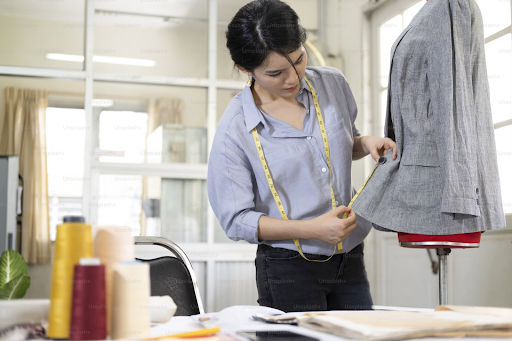Breastfeeding is the most common aspect of being a mother and is critical to your baby’s growth and development. This article will give you an understanding of the benefits of breastfeeding for both you and your baby and the economic and environmental benefits for your community.
According to our sources, breastfeeding provides your baby with some protection against childhood infections and will give your child a better chance of survival during the first year. It also shows that having contact with your child through breastfeeding, which includes skin-to-skin and suckling, has both physical and emotional benefits.
By the end of this blog, you will learn more about what breastfeeding can do for your mental health and your child’s health, both physically and emotionally.
If you want to make the most of your nursing you can also use some breastfeeding pumps and accessories to help you store and make your nursing much easier.
What is Breastfeeding?
Deciding to breastfeed your baby is one of the best decisions you can make. When you feed your baby breastmilk, this is referred to as breastfeeding. Because many medical experts recommend breastfeeding babies for six months without juice, water, or formula, it is recommended for babies up to one year old.
What are the benefits of breastfeeding for babies?
Breast milk can provide your baby with a wide range of nutrients that they can easily absorb from you, such as antioxidants, enzymes, immune properties, and live antibodies. When you breastfeed your baby, your body produces antibodies against the germs exposed to you and your baby.
Immunoglobulin A will coat the lining of your baby’s immature intestines, preventing it from leaking through. Breast Milk also contains a substance that soothes your baby naturally.
Breastfed babies have a stronger immune system, which lowers their risk of diarrhoea, constipation, gastroenteritis, gastroesophageal reflux, and preterm necrotizing enterocolitis (NEC). Your baby will also have a lower risk of infection. To summarise, your baby will be less ill overall, which means less hospitalisation.
Healthier Babies
Because your baby has a stronger immune system, it will be less likely to develop diseases such as childhood cancer, leukaemia, and lymphomas. Your baby will also be less likely to develop asthma, allergies, or eczema.
Breastfed babies have a lower risk of childhood obesity because breast milk contains certain bacteria that help to prevent obesity, which is related to a microbiome that breast milk helps to create. Breastmilk can also help your baby have fewer respiratory illnesses and healthier teeth; in some studies, it can even lead to a higher IQ score.
The advantages are not limited to your baby’s infant life; they can also affect their adolescent and adult lives; it is more of a lifetime advantage. Because your baby will have a lower risk of developing heart disease as an adult, and they will also have a lower risk of developing rheumatoid arthritis and lupus.
What benefits can you have in breastfeeding?

Since you know the benefits that breastfeeding can give your baby, I want you to know the benefits that you can have in breastfeeding; here is the exciting part about it.
Did you know that breastfeeding can help you lose pregnancy weight? Because your body burns about 500 extra calories per day to maintain the milk supply that your body requires, breastfeeding reduces your risk of postpartum depression and gives you a more positive mood and less postpartum bleeding.
It also stimulates your uterus to contract and return to its normal size, lowering your risk of urinary tract infections. Breastfeeding will also reduce your chances of developing anaemia.
Breastfeeding can also be emotionally beneficial because it produces natural hormones and prolactin that promote the reduction of positive feelings. If you gain confidence and self-esteem while nursing, you will have an increased calmness, which can help you have fewer incidences of childhood illnesses.
This benefit is that you will form a physical and emotional bond with your child because breastfeeding can give your child more affection through stroking and holding. This will benefit your child’s first years of life by reducing social and behavioural problems that may arise later in life. It will also help you understand your baby’s cues and teach them how to trust, which will significantly impact your child’s early behaviour.
As a breastfeeding mother, you will have a lower risk of breast cancer as well as a lower risk of ovarian cancer. Diabetes will be less likely, as well as hypertension and blood pressure reductions and a lower risk of cardiovascular disease.
Conclusion
Breastfeeding is the best way to feed your child in their first year. It will give them a huge immune system boost, keeping them away from diseases. This research shows that breastfed will benefit you and the infant for a long time to have lesser chances of deadly diseases and allergies.
It also shows that breastfeeding can give you a closer bond to your baby physically and emotionally. You learn the cues of your baby, and at the same, you will be the first person that will teach your baby how to trust.
The benefits of breastfeeding are both substantial for your physical and emotional health. Physically your body will lose pregnancy weight by producing extra 500 calories per day for breastfeeding. It will emotionally affect you because it will help you to reduce the risk of postpartum depression. It will give you a better mood and increase your calmness; your self-esteem will also be boosted because of this.
Breastfeeding will have a big role in your child’s life and behaviour due to the skin-to-skin and your bonding with your child, and it will affect the first year of your baby’s life in their early years. Breastfeeding can also affect your baby’s IQ in some subjects.





